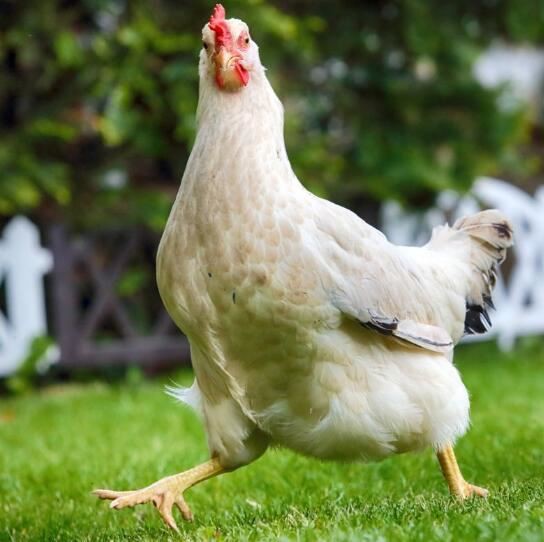Please send me an email
Follow Us:
Product Name: Echinacea Extract
Latin Name: Echinacea Purpurea
Botanical Name: Echinacea purpurea
Specification: 10:1,Polyphenols4% UV ;
Polyphenols 4% UV & Cichoric Acid 2% HPLC;
Cichoric Acid 3% HPLC;
Part Used: Whole herb
Appearance: Yellow brown fine powder
Application:animal remedy additives
Advantage: bulk stock in USA warehouse;
Certificate: KOSHER, HALAL, ISO,ORGANIC CERTIFICATE;
Echinacea extract(Echinacea purpurea) is a perennial herb of Compositae native to America. Its flower head is solitary on stem or branch top. Its main feature is that the receptacle is cone-shaped, with tubular or tongue-shaped flowers, usually rose-colored. Or purple.
Those who have been developed as medicines are mainly Echinacea purpurea, Echinacea purpurea, E. angustifolia, and E. pallia. Echinacea purpurea extract is an immunomodulator that has received widespread international attention. Its preparation sales rank among the top 5 in the pharmaceutical market in Europe and the United States.
Echinacea extract is a world-renowned “immune” herbal medicine. It has outstanding anti-infection and immune-promoting effects and has attracted great attention at home and abroad. In June 2012, Echinacea Angustifolia Extract and its preparations have been approved by the Ministry of Agriculture as a national first-class veterinary drug.

|
Product Name |
Echinacea Purpure P.E. |
|
Botanical Source |
Echinacea Purpure |
|
Part Used |
Stems Leaves |
|
Batch Quantity |
1000kg |
|
Storage |
Cool and dry |
|
Assay |
By UV |
ANALYZE
|
ITEM |
SPECIFICATION |
RESULTS |
|
Content |
≥4.0% |
4.16% |
|
Appearance |
Yellow green fine powder |
Conforms |
|
Odor |
Characteristic |
Conforms |
|
Sieve Analysis |
100% pass 80 mesh |
Conforms |
|
Identification |
TLC-Plant Drug Analysiy |
Conforms |
|
Loss on drying |
≤5% |
3.42% |
|
Sulphated Ash |
≤5% |
2.15% |
|
Heavy Method |
>10ppm |
Conforms |
|
Arsenic(As) |
<2ppm |
Conforms |
|
Residual Solvents |
<0.05% |
Conforms |
|
Microbiology Control |
||
|
Total Plate Count |
<1000cfu/g |
Conforms |
|
Total Yeast & Mold |
<100cfu/g |
Conforms |
|
Salmonella |
Negative |
Conforms |
|
E. Coli |
Negative |
Conforms |
(1) Immune activity
100 micrograms of echinacea purpurea extract can obviously stimulate the activity of macrophages to kill p815 tumor cells, and its intensity is similar to 0.1667 μmol/s macrophage activating factor. The detection of activated thymus proliferation method found that EPS can increase the level of interleukin produced by macrophages and can stimulate the proliferation of mouse B lymphocytes.
Luetting et al. proved that different concentrations of polysaccharides obtained from echinacea purpurea extract can stimulate macrophages to release tumor necrosis factor α (TNF-α) and interferon β;
Wanger separated polysaccharide components with molecular weights ranging from 25,000 to 50,000 or even higher, and the carbon particle clearance test showed that it has a significant immunoregulatory function;
Coeugniet also confirmed that Echinacea extract has a regulatory effect on the production and transformation of lymphocyte stimulation. A preparation made from the juice of Echinacea Angustifolia Extract has been confirmed by in vivo and animal experiments to increase the activity of granulocytes and macrophages. The Echinacea plant (with high content of active ingredients) in the growth period is selected, and the extract obtained by extraction with ethanol and water contains purple echinacea acid, alkyl amides and polysaccharides. It can improve the activity of the mammalian immune system; improve the phagocytic function of macrophages; promote the production of nitric oxide and tumor necrosis factor by macrophages.
(2) Anti-inflammatory activity and antibacterial activity
Echinacea is used as a traditional anti-inflammatory drug in North America and Europe. Echinacea extract showed significant anti-inflammatory effects in glacial acetic acid-induced mouse vascular permeability model, carrageenan-induced rat group swelling model, and LPS-induced rat macrophage TNF-α secretion model. Stimal et al. treated mice infected with Candida albicans with Echinacea polysaccharides, and after 24 hours, the Candida in the mouse kidneys was significantly reduced, indicating that Echinacea can resist Candida infections.
(3) Antiviral and antitumor activity
Binns SE et al. found that the Echinacea Angustifolia Extract has an inhibitory effect on herpes simplex type I virus. Wacker and Hilbig confirmed that Echinacea extract has anti-influenza virus, herpes virus and vesicular stomatitis virus activity. Zhang Yingtao and others found that echinacea extract has varying degrees of inhibitory effects on influenza virus, Sakchi virus, and respiratory syncytial virus.
In the cell culture serum of mouse macrophages pretreated with echinacea, tumor necrosis factor-α, IL-1, interferon-β2, and cytotoxicity against tumor cells increased. The purified polysaccharide isolated from echinacea cell culture promotes the automatic migration of human leukocytes and increases the ability of these cells to kill Staphylococcus aureus.
4. Toxicology Research
So far, standard toxicological evaluation methods and animal experiments have considered that Echinacea is completely non-toxic. The company commissioned Shanghai Medical Research Institute to study the effects of echinacea on mouse hemolysin, phagocytic function of peritoneal macrophages and NK cell activity. The results show that echinacea purpurea extract can enhance non-specific immunity, humoral and cellular immunity of animals.
Echinacea extract is applied in animal remedy additives

Contact us:
Email:info@greenagribio.com
Phone:+86-18966738003
Hot Tags: echinacea extract